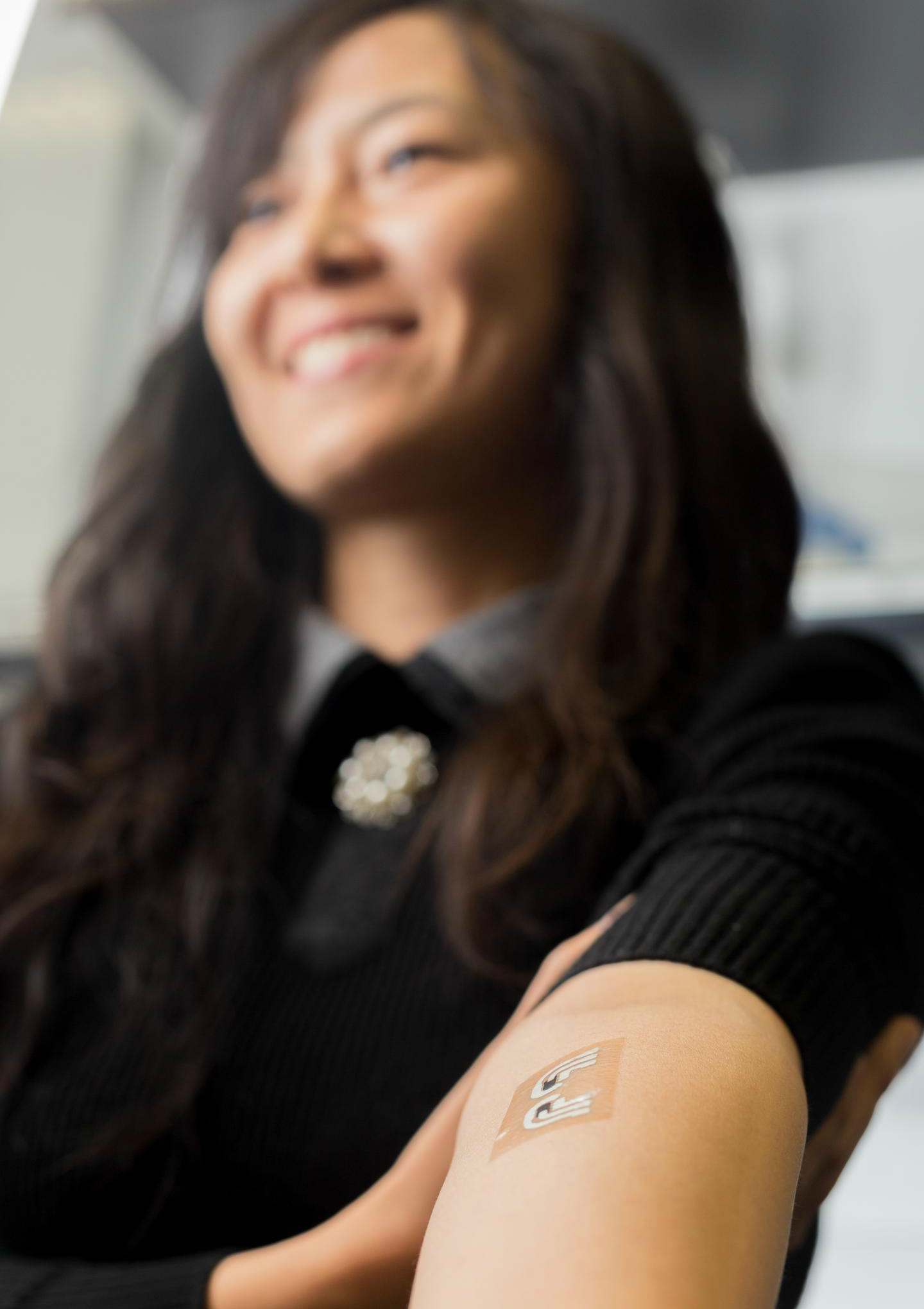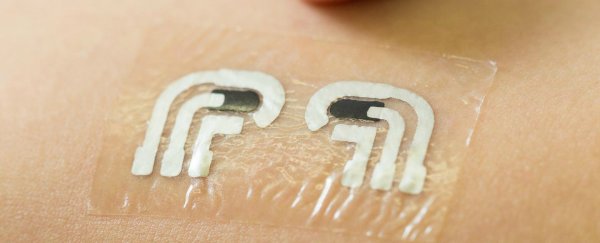Engineers from the University of California, San Diego have developed an ultra-thin temporary tattoo that can painlessly and accurately monitor the glucose levels of diabetics.
The flexible device costs just a few cents and lasts for a day at a time, and early tests have shown that it's just as sensitive as a finger-prick test.
But even cooler is the fact that the system works without blood, by extracting and measuring the glucose from the fluid in between skin cells, and could eventually be adapted to detect other important metabolites in the body, or deliver medicine.
It also looks awesome, as you can see below.
 Jacobs School of Engineering/UC San Diego
Jacobs School of Engineering/UC San Diego
At the moment, people with diabetes need to monitor their glucose levels multiple times a day by pricking their finger and assessing their blood. But in the future the tattoo will allow their levels to be continuously measured throughout the day. This means they'll be able to more sensitively maintain their glucose levels and better manage their condition.
Created by graduate student Amay Bandodkar, the device is made up of woven electrodes printed out on rub-on tattoo paper, and works by applying a very mild electrical current to the skin for 10 minutes. This forces sodium ions from the fluid between skin cells, which carry glucose, to flow towards the tattoo.
A sensor built into the tattoo then measures the strength of the electrical charge produced by this glucose. The levels of glucose in this fluid are, overall, around 100 times lower than the levels found in someone's blood, so the device requires a more sensitive sensor. But an early trial on seven men and women aged aged between 20 and 40 without diabetes has revealed that it's just as accurate as a finger-prick test. The users also couldn't feel anything while wearing the device, other than a mild tingling in the first 10 seconds of use.
The results of the trial have been described in the journal Analytical Chemistry.
Right now, the tattoo can't provide a numerical read-out that diabetics would need in order to regulate their blood sugar levels, but it's an important proof-of-concept. The team is now working on adding that user-friendly capability.
"The readout instrument will also eventually have Bluetooth capabilities to send this information directly to the patient's doctor in real-time or store data in the cloud," said Bandodkar in a press release.
And the engineers are also working on ways to make the tattoo last longer.
"Presently the tattoo sensor can easily survive for a day. These are extremely inexpensive - a few cents - and hence can be replaced without much financial burden on the patient," said Bandookar.
It's not often you get a chance to take care of your health while looking good at the same time, and we can't wait for these to hit the market.
